
Explore the top rated Oklahoma City drug rehabs with confidence. We've analyzed each of the 68 addiction treatment centers in Oklahoma City, OK for patient reviews, clinical credentials, transparency, and brand reputation to identify the best rehab programs.
Filter by inpatient, outpatient, detox, health insurance, specialty program and more to quickly find the best drug and alcohol rehab in Oklahoma City.Our Methodology
Rehab Score
Our Rehab Score is designed to make it easier for you to find the best treatment centers. We combine overall ratings with recent feedback to create a score that reflects a center's quality right now.
.
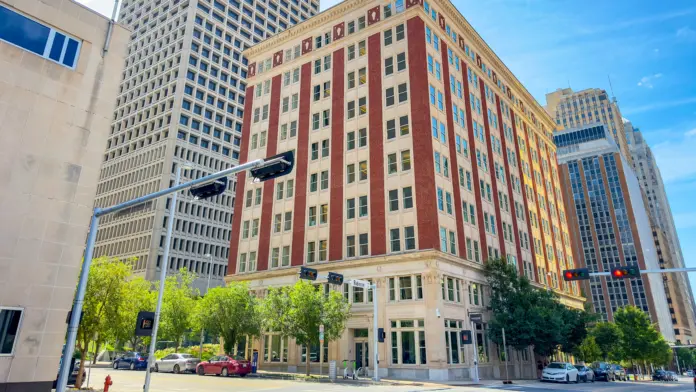
| Name / Address / Rating | Description | Treatments / Programs / Payment Options | Review / Contact | Images |
|---|---|---|---|---|
1
Top 10 Rehab in Oklahoma City
Rehab Score
Our Rehab Score is designed to make it easier for you to find the best treatment centers. We combine overall ratings with recent feedback to create a score that reflects a center's quality right now.
7.78 / 10 | Latino Community Development Agency is a dual diagnosis addiction treatment center in Oklahoma City, Oklahoma. They offer outpatient therapeutic treatment for substance use disorder. They primarily treat adolescents and young adults. They accept private insurance, Medicaid, Medicare, and out-of-pocket payments for their services. They’re accredi | Treatments Programs Payment Options | Son muy amables, me ayudaron muchísimo
Nancy Valadez
2 months ago
Todos muy amables
Nhely M
2 months ago
Fue de gran vendicion para mi Carmen chandler es muy paciente y amable
Angelica Gutierrez
4 months ago
| 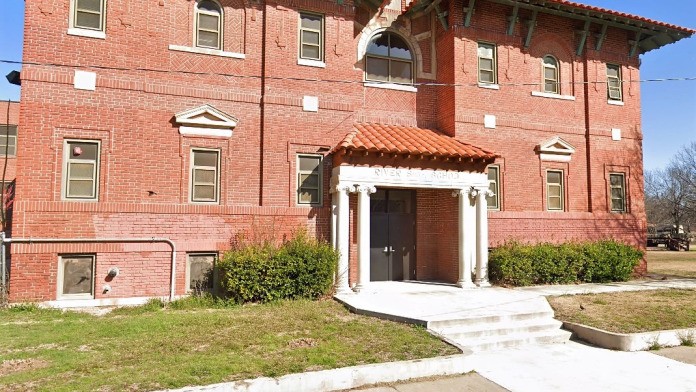
2 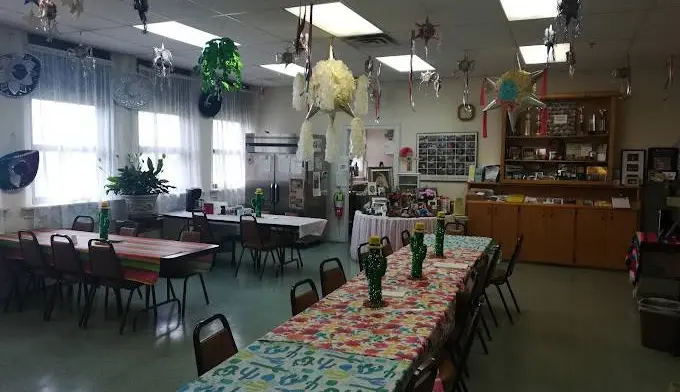
|
2
Top 10 Rehab in Oklahoma City
Rehab Score
Our Rehab Score is designed to make it easier for you to find the best treatment centers. We combine overall ratings with recent feedback to create a score that reflects a center's quality right now.
7.62 / 10 | The VA Health Care System has facilities throughout the United States, including the Oklahoma City VA Health Care System on Northeast 13th Street in Oklahoma City, Oklahoma. VA facilities serve active military, veterans and their families. The 13th Street location offers many services, including mental health and substance use disorder treatment. T | Treatments Programs Payment Options | They took great care of me for a hernia surgery. The nurses and doctors all were very personable and professional, and I and my family felt genuinely cared for. The VA has such a bad reputation that I was a little nervous but those fears, for this location at least, seem to be entirely unfounded.
S
2 months ago
Great Service and the best tasting Coffee from VA hospital Cafeteria, only one dollar but it’s the best ! Beats all Coffee from all the State of Oklahoma! ❤️🥳☕️
James Gonzales JR
5 months ago
The second dating in life, finding a doctor. I believe in the doctors, staff, and residents at the VA.
Austin Jassman
5 months ago
| 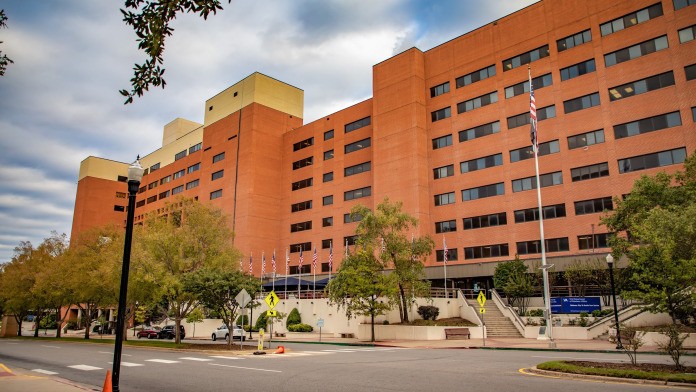
4 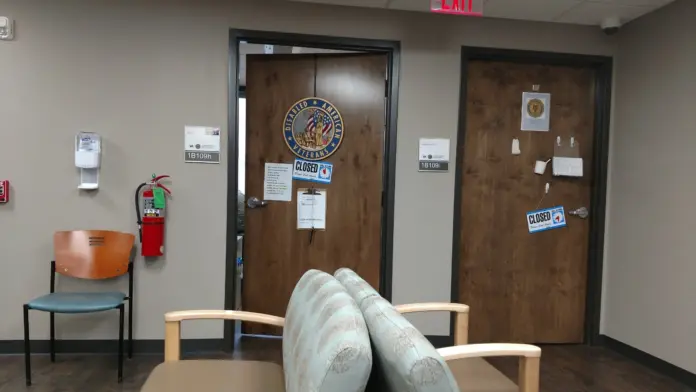
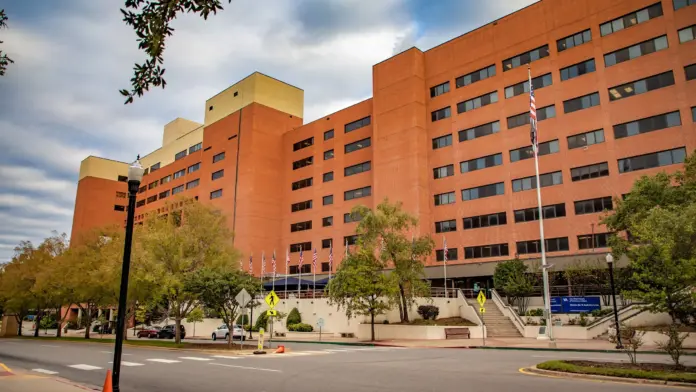
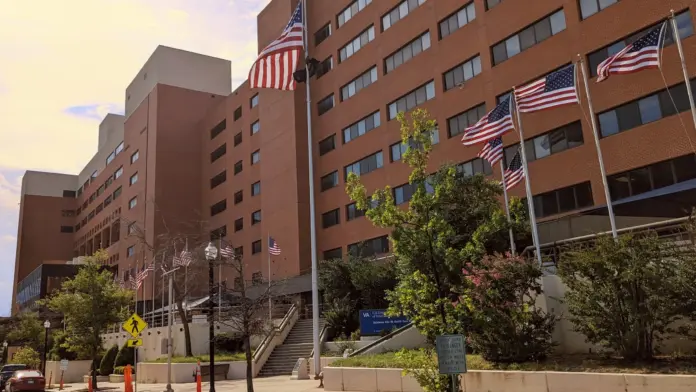
|
3
Top 10 Rehab in Oklahoma City
Rehab Score
Our Rehab Score is designed to make it easier for you to find the best treatment centers. We combine overall ratings with recent feedback to create a score that reflects a center's quality right now.
7.61 / 10 | Integris Mental Health Clinic is a private nonprofit organization in Oklahoma City, Oklahoma, offering a comprehensive array of mental and behavioral health services for people of all ages. It is part of the award-winning Integris Health System, the state’s largest nonprofit health network. Their Decisions Mental Health and Addiction Recovery Pro | Treatments Programs Payment Options | Decisions saved my life..ALL staff are wonderful caring people. Thanks!!
Kim W
3 months ago
Wonderful experience here. The staff here is amazing, super friendly and very accommodating. I would recommend anyone that needs a little bit of help due to mental health to come here. They have been a true blessing and have helped with this process and afterwards as well. HIGHLY RECOMMEND!!!
Christy G
4 months ago
An absolutely life changing experience. Thank you for helping me sort my life out, learn how to keep the good parts, appropriately deal with the bad parts and gave me the tools to live a healthy life.
OKRN814
7 months ago
| 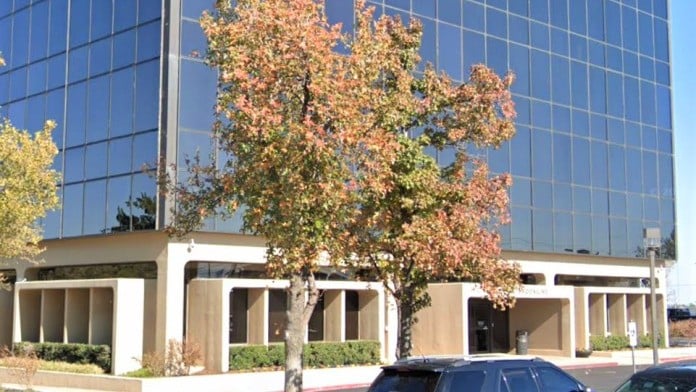
|
4
Top 10 Rehab in Oklahoma City
Rehab Score
Our Rehab Score is designed to make it easier for you to find the best treatment centers. We combine overall ratings with recent feedback to create a score that reflects a center's quality right now.
7.53 / 10 | Oakwood Springs offers individualized treatment for mental health and substance use disorder. They’re located in Oklahoma City, Oklahoma. They’re Joint Commission accredited and LegitScript certified. This means that they met the standards for the highest quality of care. They also address co-occurring disorders. This is when someone is simult | Treatments Programs Payment Options | My husband just got out of oak springs and would like to thank Tj and Ronnie for the work and inspiring my husband to move forward with his sobriety moving forward . I personally think without them he would’ve just left early and nothing more would have happened. My husband billy wright would also like to say thank you to those me.
Tassie Wright
2 months ago
Tj and Ronnie were amazing!!
ASPHP
2 months ago
TJ and Ronnie are great support advocates here. My experience and my start off in recovery was hard and they gave me advice I still remember today and life keeps getting better.
Tristan Hughes
2 months ago
| 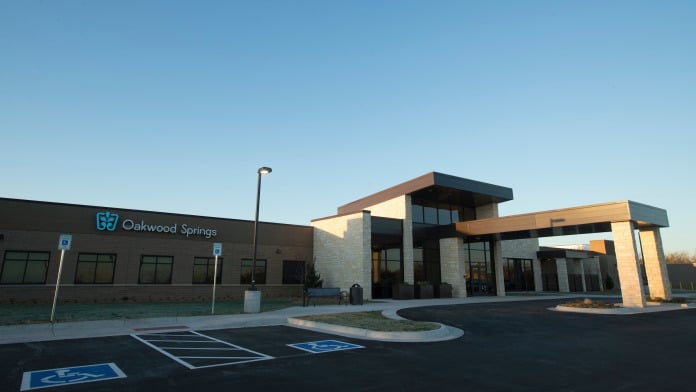
6 6 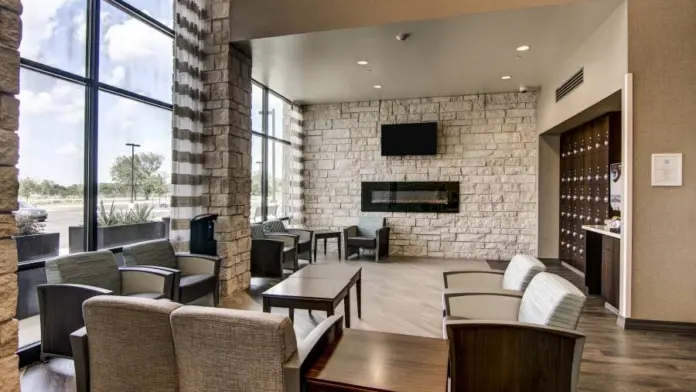
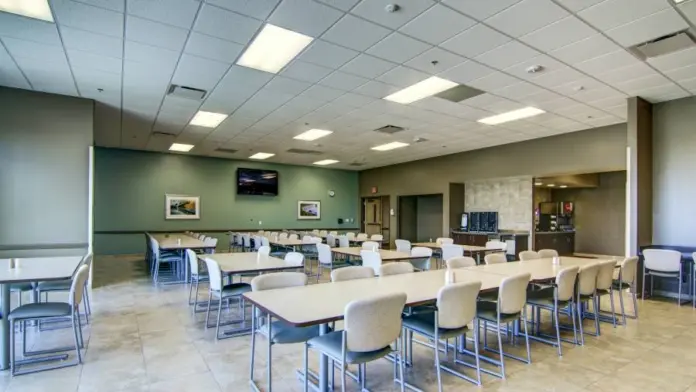
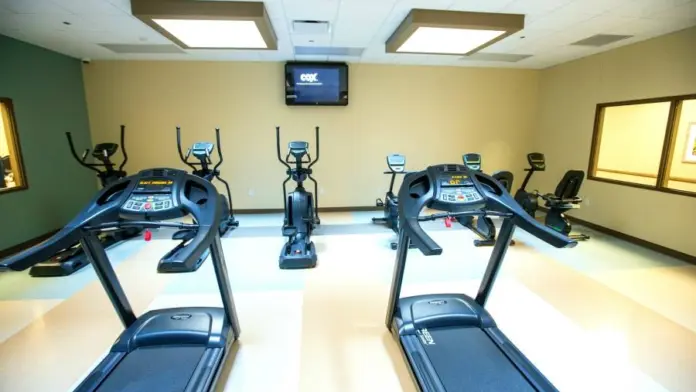
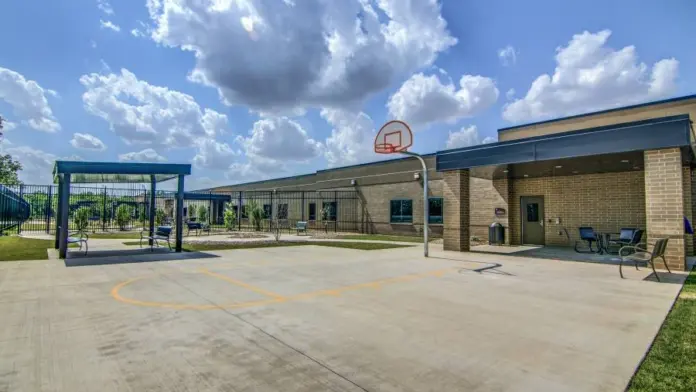
|
Oklahoma City, OK | Valley Hope of Oklahoma City is a facility in Oklahoma City, Oklahoma, that provides intensive drug and alcohol addiction. Their programs are a stepping stone for those transitioning from inpatient treatment back to daily life. The services at this facility include an intensive outpatient program (IOP) and continuing care. The outpatient program co | Treatments Programs Payment Options | This program played a critical role in supporting my sobriety. I began my recovery journey in the inpatient program at Valley Hope, and after completing that phase, I transitioned directly into their outpatient services in Oklahoma City. The outpatient program offers two formats—online and in-person—and I chose the in-person option because of the structure and connection it provides.
Throughout my participation, I developed meaningful relationships with fellow patients and benefited greatly from individualized counseling sessions. These one-on-one meetings were especially impactful, offering personalized guidance, accountability, and a safe space to process challenges. The group environment also fosters peer support, encourages personal responsibility, and helps individuals stay focused on their recovery goals.
I genuinely believe that the outpatient program was essential to maintaining my sobriety. The support, education, and community it provides make a significant difference, and I cannot overstate how valuable the experience has been. For anyone struggling with substance use, I strongly recommend considering this program as a resource for long-term recovery.
Rachael
2 months ago
This place was amazing. Amazing Stephanie is a great therapist Sable and Keiana are the best definitely worth your time in your recovery
lauren gralla
1 year ago
It is a wonderful place with people that care.
April Thompson
2 years ago
| 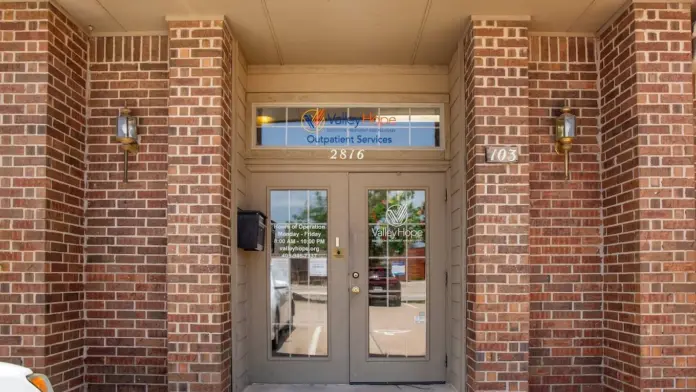
4 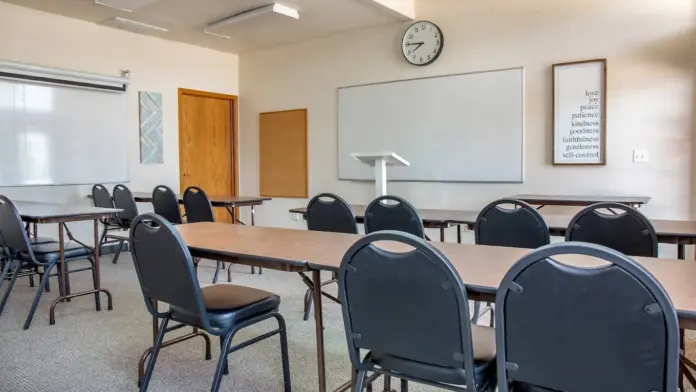
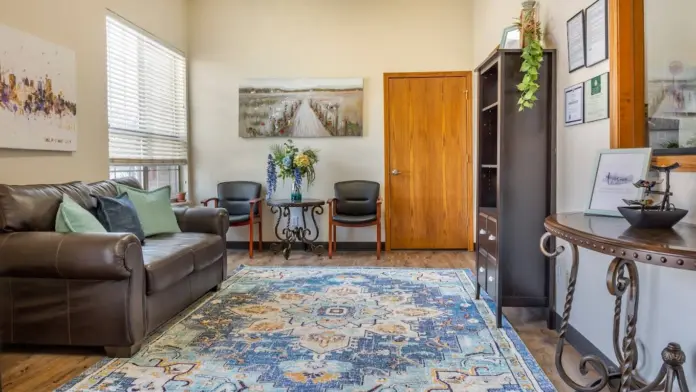
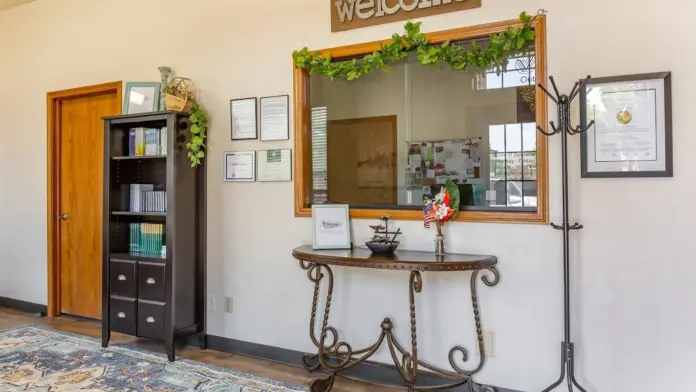
|
Oklahoma City, OK | Located in Oklahoma City, Oklahoma is the South Oklahoma VA Clinic. This is an outpatient clinic that operates in conjunction with the Oklahoma City VA Medical Center. If you’re struggling with your mental health, have addiction struggles, or need specialized care, you can start by seeking that treatment here in the South Oklahoma VA outpatie | Treatments Programs Payment Options | Dr Paul is Amazing, Staff is Very helpful and courteous
CHR15 CHR15
10 months ago
I know a lot of people complain about the care they receive at the VA, but this clinic is truly great, full of compassionate people that care about their patients/vets. 10/10 Recommend
M Wunder
1 year ago
Stellar
--.
1 year ago
| |
Top Oklahoma Cities | ||||
Oklahoma City, OK | Valley Hope is an addiction recovery center for adults in Oklahoma City, Oklahoma. They offer outpatient services to help you overcome your substance use disorder and prepare you to reintegrate into society. They provide intensive and general outpatient treatment as well as continuing care and recovery support. Their intensive program lasts 12 wee | Treatments Programs Payment Options | This program played a critical role in supporting my sobriety. I began my recovery journey in the inpatient program at Valley Hope, and after completing that phase, I transitioned directly into their outpatient services in Oklahoma City. The outpatient program offers two formats—online and in-person—and I chose the in-person option because of the structure and connection it provides.
Throughout my participation, I developed meaningful relationships with fellow patients and benefited greatly from individualized counseling sessions. These one-on-one meetings were especially impactful, offering personalized guidance, accountability, and a safe space to process challenges. The group environment also fosters peer support, encourages personal responsibility, and helps individuals stay focused on their recovery goals.
I genuinely believe that the outpatient program was essential to maintaining my sobriety. The support, education, and community it provides make a significant difference, and I cannot overstate how valuable the experience has been. For anyone struggling with substance use, I strongly recommend considering this program as a resource for long-term recovery.
Rachael
2 months ago
This place was amazing. Amazing Stephanie is a great therapist Sable and Keiana are the best definitely worth your time in your recovery
lauren gralla
1 year ago
It is a wonderful place with people that care.
April Thompson
2 years ago
| 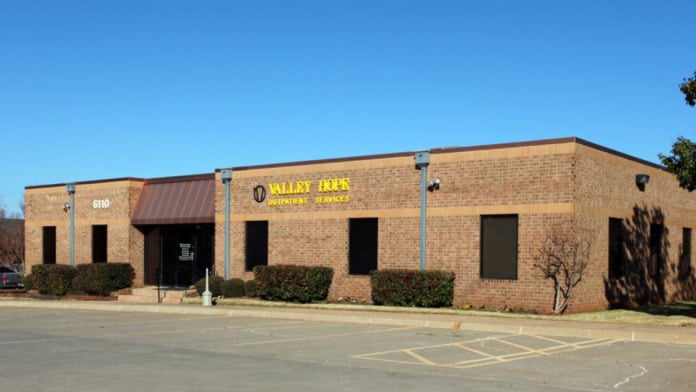
|
Oklahoma City, OK | VA North May VA Clinic offers outpatient treatment for substance use disorder and co-occurring mental health disorders for veterans and their families. They’re located in Oklahoma City, Oklahoma. This is an outpatient facility. You may visit this facility with or without an appointment. Treatment is provided for substance abuse as well as mental | Treatments Programs Payment Options | Always awesome care!!! Thank you
Michael Loup
3 months ago
Great staff, caring physician, extremely clean, treated very well by a host of professional people. Best VA treatment place to be.
dawn jerman
5 months ago
The staff is friendly, helpful, and the establishment is not overly busy.
Devin Blake
7 months ago
| 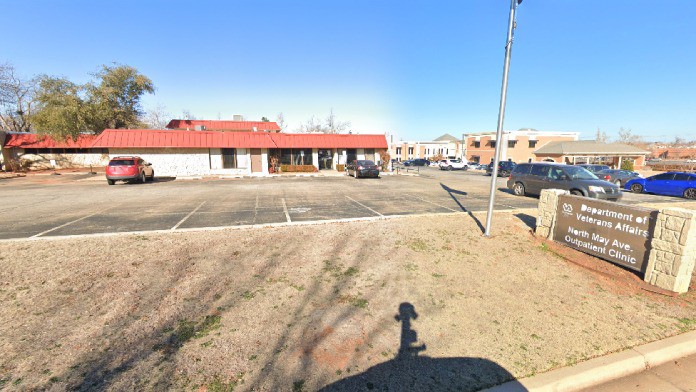
4 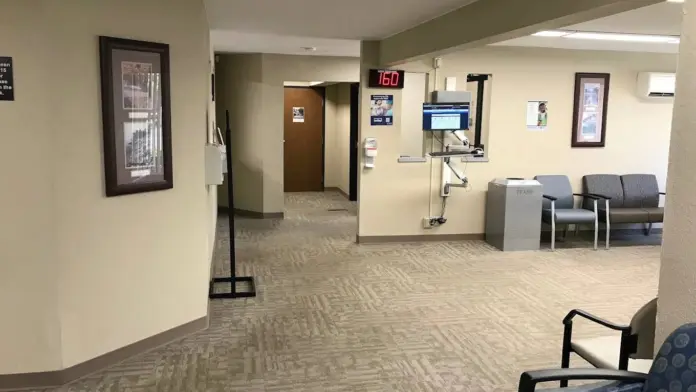
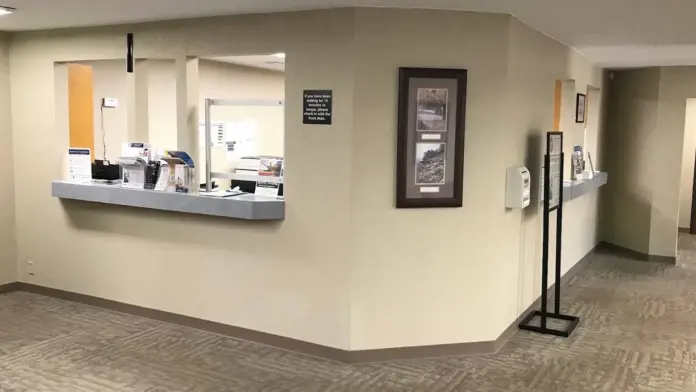
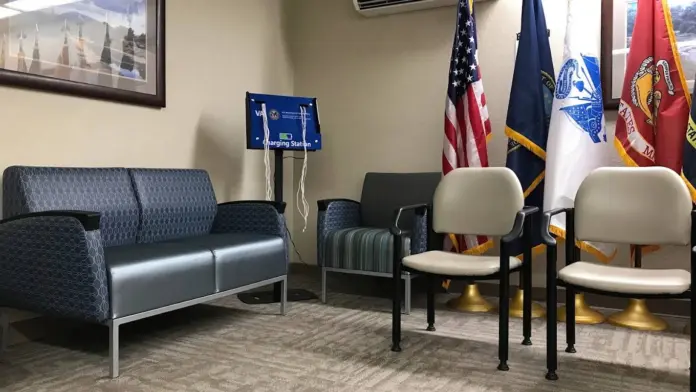
|
Oklahoma City, OK | South OKC Rightway Medical is a drug rehab in Oklahoma City, Oklahoma. They specialize in outpatient medication assisted treatment (MAT) and counseling for adults fighting opioid use disorder (OUD). Clients benefit from individualized treatment plans to fit their unique situations. Outpatient rehab provides low intensity care for people participati | Treatments Programs Payment Options | Thanks to this place I’ve been sober for almost 5 years straight! I got my dream job working as a veterinarian assistant and have a wonderful relationship with all my kids. I think if we didn’t have places like this I wouldn’t be here. I’m so thankful for my clinic and my therapist for helping me get better and back on track!
Nikki Williams
6 months ago
The clinic is a lifesaver. The staff is great and very empathetic and Methadone is by far better than trying to go through withdrawals.
Sb Bridges
3 years ago
Great Staff!!!
Jen that works the front desk is so amazing and everything runs smooth when she is working. As of for my counselor Brian and the Nurses, Tess they are so amazing also. They all are a true definition of working as a team. I love them all.I was on the program in 2004 and worked it and came off. Then I came back in 2020 and they saved my life again. I'm on 29 MG and I'm working my program and I have been very successful. I have a full time job and part time, I have a new car and a new life with many blessings from God and the clinic. My life has changed so much with the work of myself and God working through me.i am very greatful for the person I am today. So please don't ever give up, keep pushing and you will be successful.
I just want to say thank you to Rightway Clinic and God.
Tonja Thompson
4 years ago
| 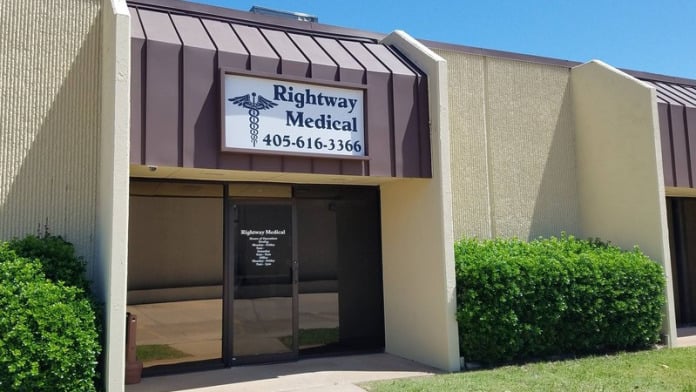
3 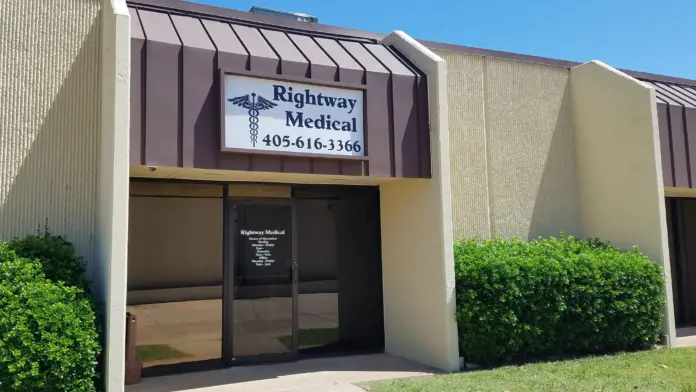
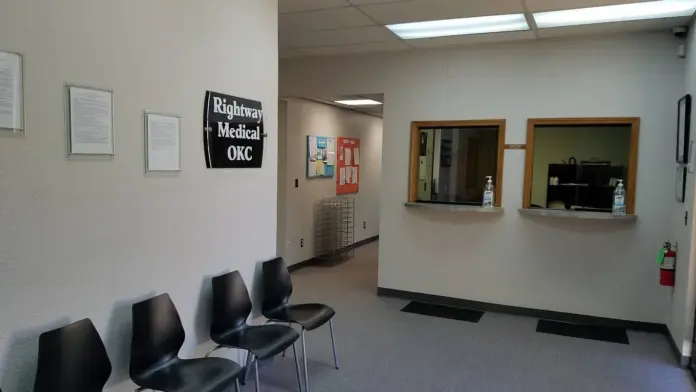
|
Oklahoma City, OK | Able Recovery is an outpatient addiction treatment center that can be found in Oklahoma City, Oklahoma. This drug rehab center provides extensive substance abuse services within its treatment programs. Able Recovery specifically focuses on opioid and heroin addiction treatment. Able Recovery can offer patients medication assisted treatment as a f | Treatments Programs Payment Options | I am so very thankful for this place.My life is coming back to normal.I have no urge to do what I was doing before treatment and the staff is so kind.We drive from 60 miles away and I take a few guys with me and they also are back to normal and got jobs and homes.Thank you so much for caring for us.Now we need to get an office out ion this part of Oklahoma.Thanks again ……………………
John Buchanan
1 year ago
Employees are very positive and willing to help. Thank you Able Recovery for making everything so smooth for me. You can tell they care about the patients. The staff makes me feel comfortable. They're informative and explain everything.
6 years ago
This treatment was successful where many others were not
7 years ago
| 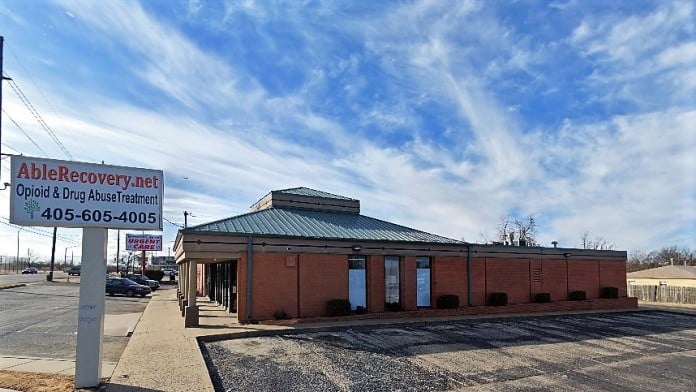
6 6 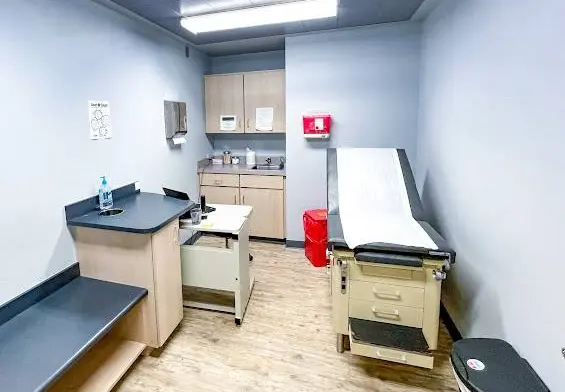
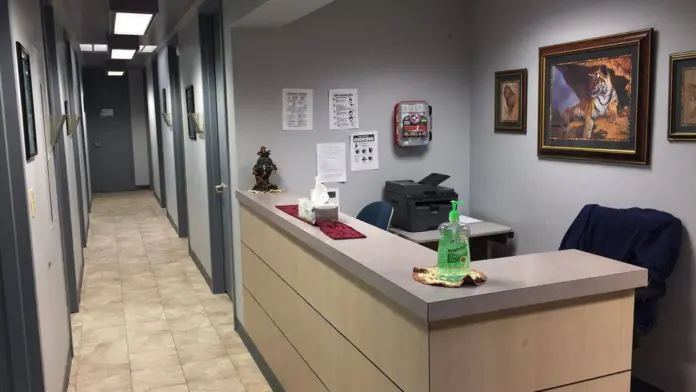
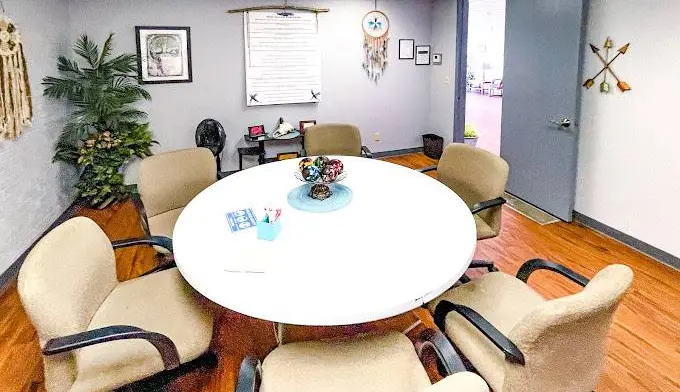
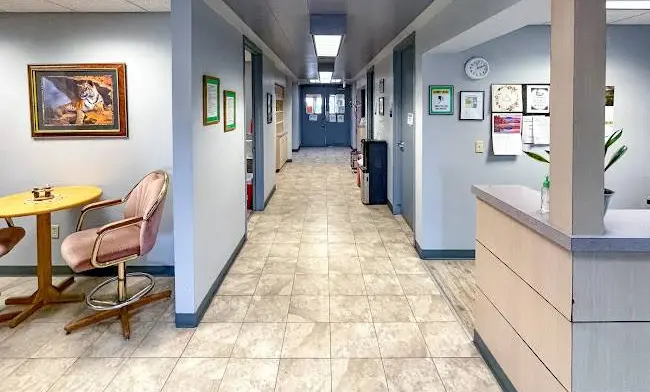
|
Oklahoma City, OK | New Beginnings Counseling Services in Oklahoma City, Oklahoma, provides mental health and addiction treatment services. Support extends to individuals experiencing severe emotional disturbances (SED), as well as families, including non-traditional, blended and multigenerational units. The organization accepts state-financed health plans such as Med | Treatments Programs Payment Options | Tami is incredibly helpful with scheduling and guiding clients to the best therapist for their individual needs.
Kyla Fielding
2 months ago
Rachael Self was amazing! She made me feel heard, comfortable, and supported. I left feeling so much better. Highly recommend!
Lura Barns
2 months ago
Tami is def one of the good ones! She is always so thoughtful. Always willing to help in any way she can.
Claudia Lopez
2 months ago
| |
Oklahoma City, OK | Firstep Women’s Recovery Program is a residential alcohol and drug recovery program in Oklahoma City, Oklahoma. They provide a sober living community based on the Social Model as an alternative to drug rehab. They welcome women aged 18 or older struggling with alcohol, drugs, and opioid addictions. Clients can access intensive outpatient services | Programs Payment Options | Just an amazing staff and the residents are so courageous.
If you need help, can them
They care.
Pristine Cleaning Professionals LLC
5 months ago
What an excellent mission. These are local people with high moral character who are trying to do good work removing women get back on track so they can thrive in life.
We know several of the administrators of this program.
They care and they work hard.
If you know a woman in need of this, there is no better opportunity to get help.
Bing Referrals
7 months ago
It Truly is the 1st step to recovery !
Shycahna White
1 year ago
| 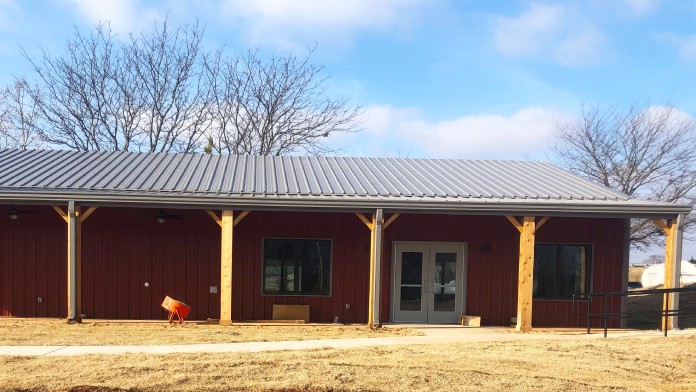
3 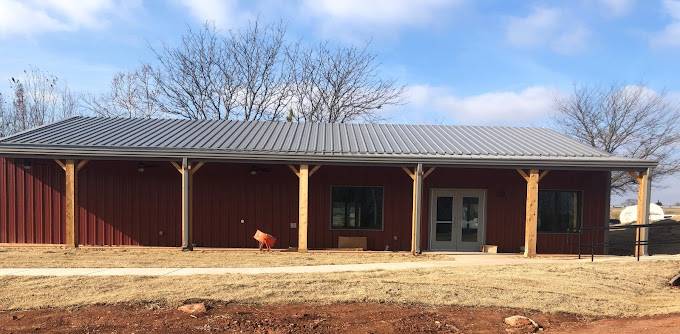
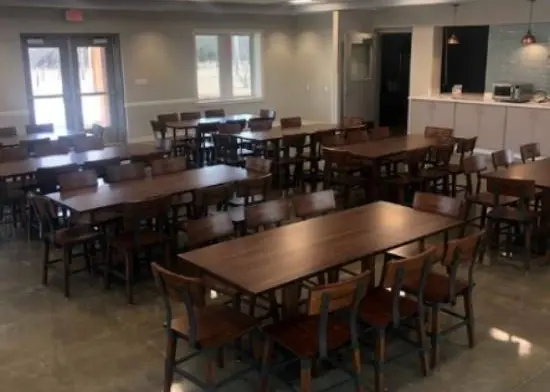
|
Oklahoma City, OK | Mission Treatment, located in Oklahoma City, Oklahoma is a private alcohol and drug rehab that offers treatment for a variety of substance abuse addictions including co-occurring mental health disorders and opiate addiction. They offer supervised medical treatment to safely manage withdrawal symptoms during detoxification, as well as flexible outpa | Treatments Programs Payment Options | Love them . As long as you show them that you're willing to put forth the effort for you to be healthy they will put forth the effort to help you get there you can definitely tell that they care in the many many ways that they show recovery is possible it's up to you just to show how possible it is
Deserae Hurder
11 months ago
Wonderful place,wonderful Staff
Leondacherie Sliter
1 year ago
Hello everyone I'm coming from Texas and the clinic I have been at since 2009 is the best it was the 3td one before I found them all the others were hateful staff treated us like we were criminals so I'm so afraid of what's going to happen when I get to Oklahoma City Oklahoma I need to move because Texas is getting to dangerous and to expensive I'm on a fixed income I looked up what states are the best for price and safety ur state is one of the top but finding a safe friendly clinic is very hard and all the reviews say this is an amazing place so I can't wait to meet the staff and doctor!! ❤️🙏👍😇🌹
Lenda Lee
2 years ago
| 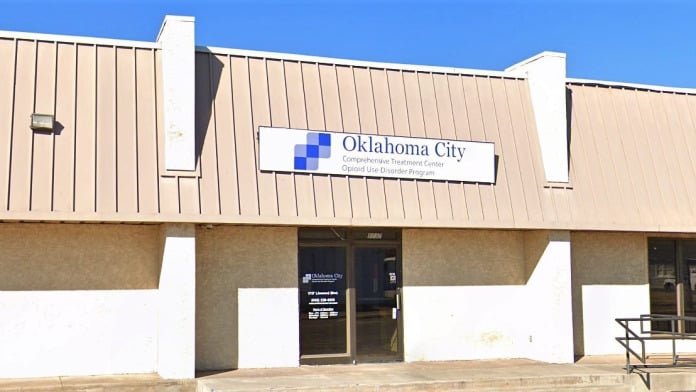
2 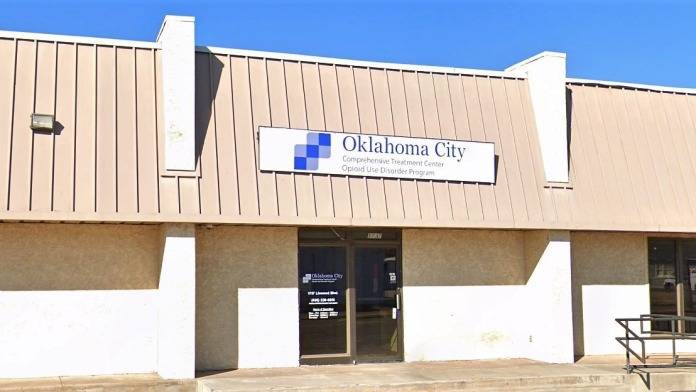
|
Oklahoma City, OK | The Salvation Army Adult Rehabilitation Center – Oklahoma City in Oklahoma City, Oklahoma, specializes in mental health and substance abuse services to adults aged 18 and older. Their charitable support is designed to offer treatment at little to no cost to participants. Clients can access a residential drug rehab program here. Designed to he | Treatments Programs Payment Options | Great
Denise Thomas Hayward Hudson
7 months ago
I was your doordash driver for Superbowl Sunday! Thank you so much for being so nice! 😁
Shannon Charqueno
11 months ago
Great place! Been sober since I left there in 2015 !
Bobby Jacks
1 year ago
| 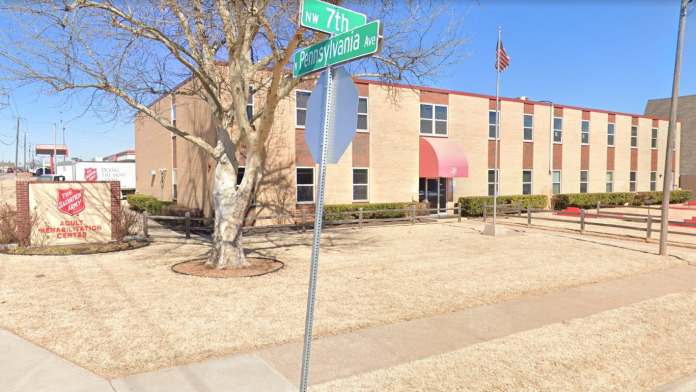
|
Oklahoma City, OK | Jesus House is an addiction and mental health treatment facility in Oklahoma City, Oklahoma that’s devoted to aiding men and women with addiction to find lasting recovery through Jesus Christ. The facility provides free residential addiction recovery services. They also have a program offering hot meals as well as clothing and groceries to homele | Treatments Programs Payment Options | Good people
Arlanda peshlakai
1 year ago
So happy to be a resident here, it's a great place to get your life together, God bless the staff and people in here 💖🙏
Tristan Tarver
1 year ago
11 am Snack pack. 4pm Dinner Monday thru friday
Dustin Welch
1 year ago
| 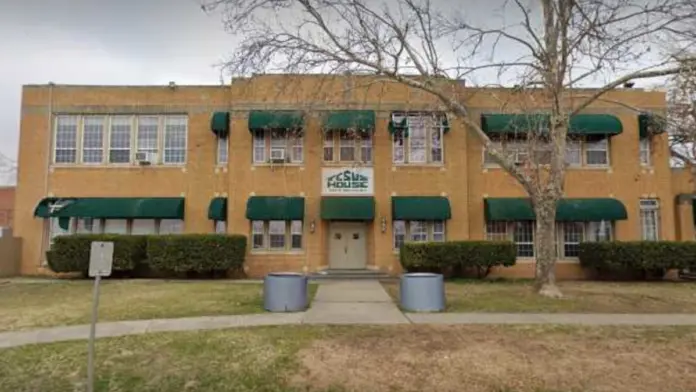
|
Oklahoma City, OK | Catalyst Behavioral Services’s Community House Residential Program is a private rehab located in Oklahoma City, Oklahoma. They specialize in the treatment of alcoholism, drug addiction and dual diagnoses. Available programs include residential treatment, outpatient treatment, and aftercare support. Specialized services are available for those wit | Treatments Programs Payment Options | Best rehab in the nation. It saved and change my life. The awesome staff is what makes it the best. I'm not sure what it is but miracles happen there every day.
Glenn Davis
2 months ago
This place is a gold mine when it comes to resources, therapy,real life experience, spirituality and The staff will pull you up..my red road of recovery started in Wichita falls back in 2022 but it was when I went here that all of the things I had learned from other treatment centers finally made sense now!!
Ian Kaulaity
2 months ago
It was like a sober walk in the park, yes at first it was untasteful because I didn't have any alcohol but the more I walked it started to taste like honey on my toast how sweet it was. Then the people began to share with me, a share I never felt it was called love. No alcohol, no drugs it was like a dream come true, a real love affair. Needless to say I'm still sober thanks to the staff at the community house...
Houston Ward III
I love 💕 you and it AIN'T nothing you can do about it Jennifer lol
Houston Ward
2 months ago
| |
Oklahoma City, OK | Nestled in Oklahoma City, Oklahoma, Into Action Sober Living offers those who take the next steps in their recovery process more than just a place to stay. They provide a life-changing environment where recovery has a chance to flourish, and the personal transformation to a sober lifestyle outside of an intensive inpatient program is made possible. | Treatments Programs Payment Options | Into action is a really good house they really care and everyone is doing the right thing.
Hudson
2 months ago
A wonderful place the guys that live here really helped me become a better person and live a sober life they push me to succeed in life as a sober person it's a wonderful place if you want to live a sober life
Shawn Richmond
2 months ago
This is a safe place for brothers who are going through their journeys in A.A. and continues to speak for themselves on their effectiveness and quality. The leadership is impeccable, and the residents are inspiring. Thank you for existing Into Action!
Michael Sellers
3 months ago
| 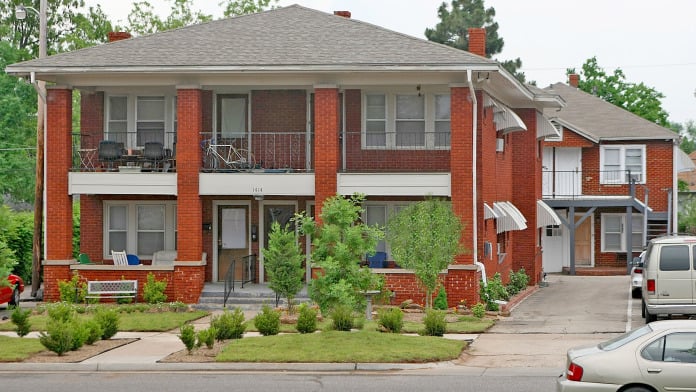
6 6 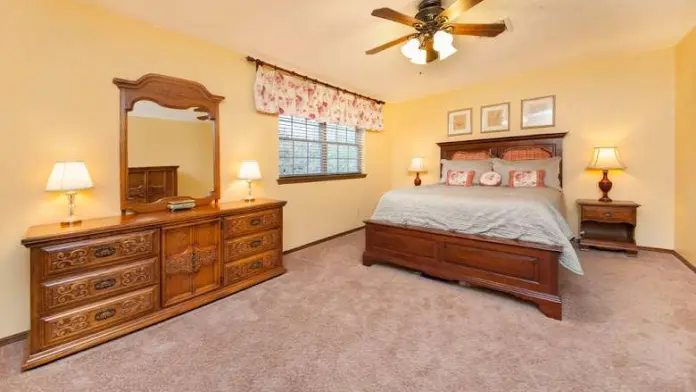

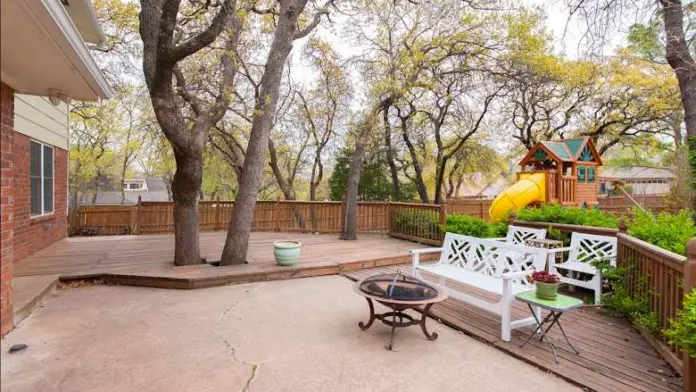
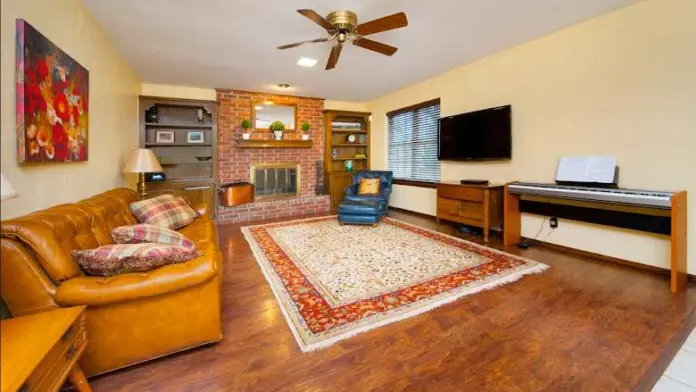
|
Oklahoma City, OK | Hope Community Services Wellness and Recovery is an alcohol and drug rehab in Oklahoma City, Oklahoma. They provide outpatient treatment and aftercare for mental health, alcohol, drugs, and opioids. Clients can access evidence based care, case management, psychiatric services, bilingual services, criminal justice services, medication assisted treat | Programs Payment Options | HOPE Community Services went above and beyond to help me when I was down on my luck and needed medical treatment/ counseling. I would highly recommend them to residents of the OKC metro.
Neo The Hermit
2 months ago
I remember I used to come here every so often I think weekly or something we had snacks n talked to one another in a group
Ernesto Bejarano
2 months ago
Hope helped me get a hold of myself so that I could see more clearly through trauma and grooming. I am living more honestly and more healthy that ever before. God bless them.
Big Yeti Cane
2 months ago
| 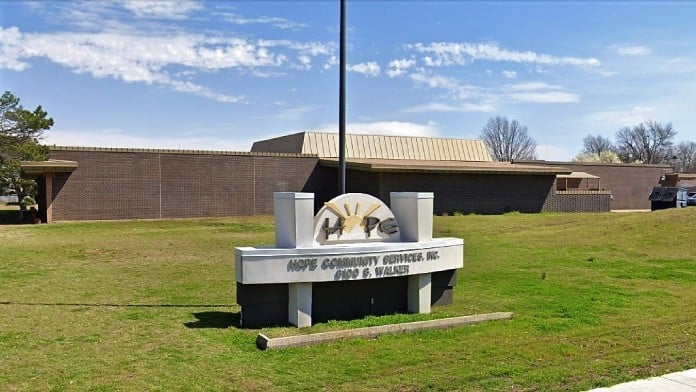
2 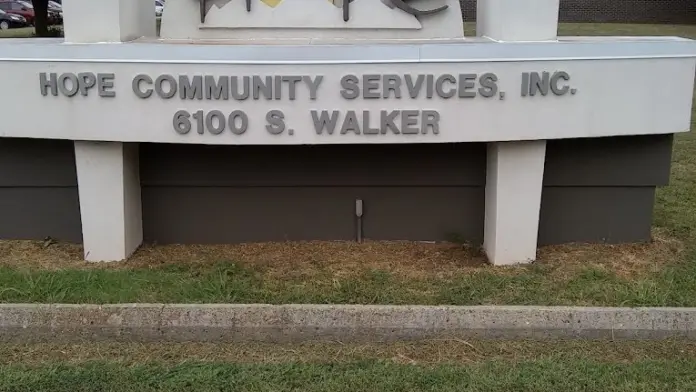
|
Oklahoma City, OK | A Chance to Change offers substance abuse and co-occurring mental health treatment for adults, teens, and kids. You'll find 'em located out in Oklahoma City, Oklahoma. They have outpatient treatment available and also offer telehealth services for more convenience. They have an experienced team of professional counselors working together on your b | Treatments Programs Payment Options | As a Putnam City employee, I have been going to counseling here for almost a decade. The counselors here are fantastic and so are the front desk staff. Cecilia is the best counselor ever. They also offer additional classes that you can attend in a group.
Jesse Adams
5 months ago
They’ve been very good about communicating things since I’ve started with them in 2020.
Thus far I’ve been happy with the support that I get there— thank you.
Q. Pham
1 year ago
This is a wonderful organization! My therapist was compassionate and provided me with alot of insight and a good listening ear. A God-send. Thank you Melia!
Beth Billingsley
2 years ago
| 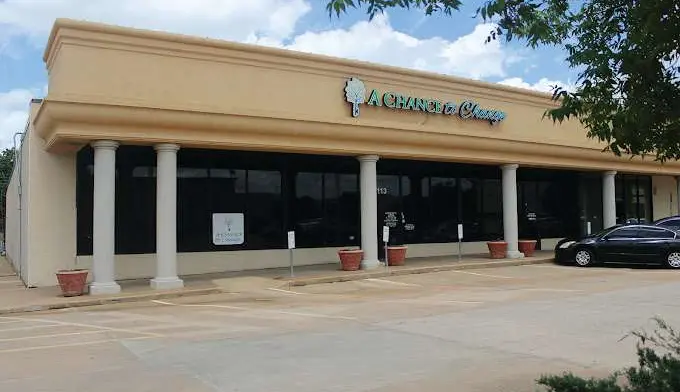
|
Oklahoma City, OK | Hope Center Ministries in Oklahoma City, Oklahoma, has designed its own three phase recovery program. They help men who are battling addiction through the different stages of recovery over the course of one year. Their mission is to lead clients and their families to become devoted followers of Christ. Phase 1 is four weeks long and consists of a | Treatments Programs Payment Options | This place is amazing and they continue to help so many people!!! Miguel is the best
Mikey
3 months ago
Great speakers and info! Learning the different perspectives and how the RPs, Directors, IT, and HR, and even finance works together was great. Lovingoood was the high point! Relatable, applicable, informative, and helpful! The time allowed to be together outside of meeting was invaluable, too. Great balance! Location was fantastic!
Angie Wilkey
3 months ago
Life changing experience!
Miguel Palacios
3 months ago
| |
Oklahoma City, OK | West OKC Rightway Medical, located in Oklahoma City, Oklahoma offers outpatient treatment for individuals dealing with substance use disorders. They procide detox services and structured therapy sessions while allowing clients to live at home. Holistic Care for Pregnant and Postpartum Women in Oklahoma City This program caters to young adults and a | Treatments Programs Payment Options | My husband and I began attending (SOTS) “Southern Oklahoma Treatment.” However, they were shut down after about four years of treatment. Subsequently, we switched to RightWay Medical, and they have been incredibly helpful.
There have been a few instances where they made mistakes. For instance, Carla, one of our former nurses, miscalculated my dose. At that time, I was taking 140 mg, but she gave me only about 100 mg. I usually can tell by the amount in the bottle and how long I’ve been on that dosage. I would check my bottles after receiving them, and they would be fuller than when Carla dosed me. So, I didn’t think to check my take-home doses at the time because they usually paid close attention. However, for some reason, she wasn’t paying attention that day. When I got home, I noticed that my bottle was almost empty. It wasn’t full like it should have been. When I contacted them, they informed me that it was already too late because I had already left the facility. I realized that I should have checked my dose before leaving. That was the first time my medication was messed up, and it’s only happened once since then.
The only other issue I’ve had with them was a failed urine test. I had to undergo a drug screen, and it indicated that I had narcotics in my system when I knew I didn’t. I asked them to resend the test and investigate further because I was innocent and knew I hadn’t taken anything besides my Methadone. However, I was still in trouble and had to visit them daily for about three or three and a half weeks.
Barbara Taylor
4 months ago
This place is great with good honest people working every day to help you live a normal life thank you right way west!!
Brandon Knight
4 months ago
Everyone is really down to earth and nice. Especially the receptionist Kristen.
A Google User
1 year ago
| 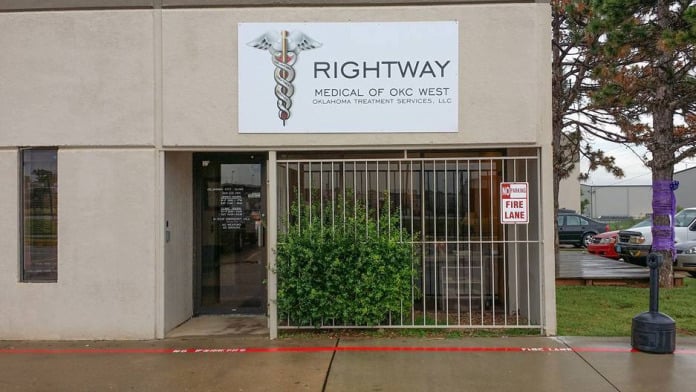
|
Oklahoma City, OK | The Recovery Center (TRC) in Oklahoma City, Oklahoma offers drug and alcohol addiction treatment services. They help individuals maintain sobriety with detox services, outpatient care and aftercare support. Their services are available to adults over the age of 18. They accept a wide range of insurance plans, including Blue Cross Blue Shield, Unite | Treatments Programs Payment Options | Great place with loving staff. Highly recommend
Erik Hayes
2 months ago
In 2021 I had to go here. Was homeless, lost, and wanting a change. 4 years later got my own apartment and my own car.
Believe in yourself. It works if you work it.
Därk Cløud
3 months ago
They helped me when I didnt have the means to help myself quit a bad habit. I am eternally grateful for all of their help and hard work! Most of the staff are friendly and work hard to help those in need. The very end got a little rocky due to a complete misunderstanding. No biggie tho... im on the spectrum so im I used to being misunderstood. Overall my experience was very helpful.
Brii
5 months ago
| 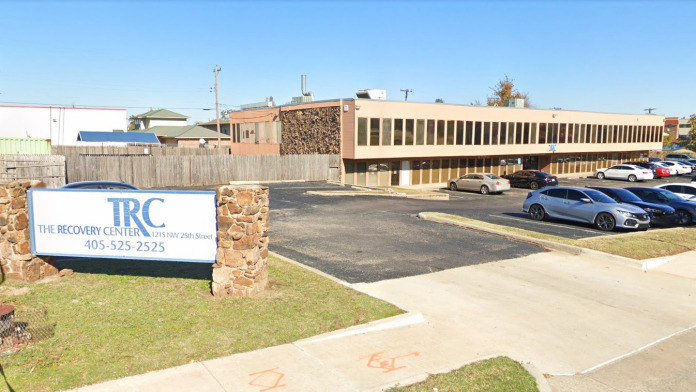
|
Oklahoma City, OK | Turning Point South, located in Oklahoma City, Oklahoma is a non-profit alcohol and drug rehab that offers treatment for a variety of substance abuse addictions including alcoholism, co-occurring mental health disorders, and opiate addiction. They offer flexible outpatient addiction therapy allowing patients to live at home while receiving regular | Treatments Programs Payment Options | What a wonderful facility! Thanks for all that you do!!
Danielle
11 months ago
Adult and Teen Challenge of Oklahoma saved my life in 2017. Thank God for programs like this that reach into a dark world and pull people out. I would recommend this program to anyone who is seeking a better life and freedom.
Caitlin
1 year ago
Great organization that works to transform the lives of those struggling with addiction.
Stephanie Henderson
1 year ago
| 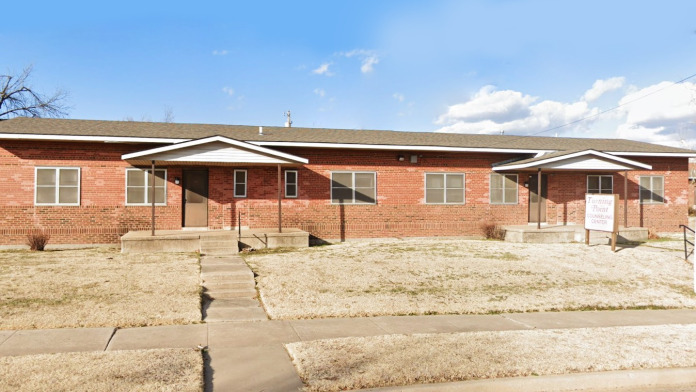
|
Oklahoma City, OK | Catalyst Behavioral Services provides outpatient treatment for adults with substance use disorders in Oklahoma City, Oklahoma. Their knowledgeable staff is committed to helping you along the way and offering vital resources for healing and self discovery. The facility offers evidence-based individual and small group therapy programs to make sure yo | Treatments Programs Payment Options | There are so many jewels that are in this place and all it takes is a willingness.Ms.Renee you are so rich, and so needed.
George Dortch
3 years ago
Catalyst has the absolute best Physician's Assistant and staff members. The doctor was great, too!
Keilea Johnson
5 years ago
I had the most caring doctor who helped me to regain my life. Then again, everyone was super nice here, from the first time I was there they always welcomed me with a friendly attitude and open arms.
6 years ago
| |
Oklahoma City, OK | NorthCare is an outpatient addiction treatment facility located in Oklahoma City, Oklahoma. They treat those who are dealing with substance abuse, mental illness, chronic illness, and trauma. They have a 24 hour intervention line available for those who feel they really need help. The staff strives to assist their patients with living healthier lif | Treatments Programs Payment Options | They have helped my grandson so much. It is night and day difference for him.
Cynthia Stankalis
10 months ago
I truly wouldn't be alive without this place!!!
Janet Rodriguez
11 months ago
This place changed my life .
Thank you NorthCare
E
1 year ago
| 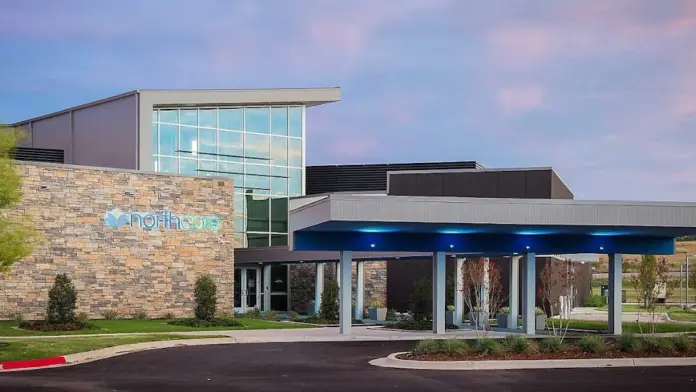
|

Oklahoma City is the 187th most expensive city nationwide for addiction treatment affordability, with an average cost of addiction treatment of $56102. This is comparable to the average cost of $54475 for addiction treatment in Oklahoma and comparable to the national average cost for drug rehab of $57,193.
The costs of drug and alcohol rehab in Oklahoma City vary widely and depend on several factors, including:
The costs of addiction treatment listed for cities and states are averages based on the cost of medical detox, inpatient rehab, outpatient rehab, and medication assisted treatment. These averages are high due to the cost of medical detoxification and residential inpatient rehab programs.
These numbers also reflect the raw cost of drug rehab, before any insurance coverage. The typical individual seeking addiction treatment can expect to pay much less for outpatient or intensive outpatient services than the averages listed below.There are many ways to pay for drug rehab in Oklahoma City. Most rehab treatment centers accept cash or self-payment, as well as private health insurance. However, there are many treatment centers in Oklahoma City that accept Medicaid and Medicare, or offer sliding scale payments or other low-cost payment options. Here's the complete breakdown of how to pay for addiction treatment near Oklahoma City.
Humana is the most widely-accepted insurance for drug rehabs in Oklahoma City, with 10 treatment centers in the city accepting their insurance. UnitedHealth Group is the 2nd most popular with 10 treatment centers accepting it followed by Cigna in 3rd accepted by 8 drug rehabs.
Oklahoma City has the 123rd highest rate of drug use nationwide among nearly 400 cities surveyed. This number reflects the combined use of cocaine, heroin, meth, and marijuana, displayed individually below. The percent shown for each drug represents the number of residents in Oklahoma county that have reported ever using the following drugs, so these numbers should not be interpreted as direct evidence of current drug use in Oklahoma City or Oklahoma county as a whole.
In 2023, Oklahoma City had the 31st highest number narcotics violations out of 330 cities nationwide, with a total of 1858 reported drug-related incidents that year. This includes cases of public intoxication, drug arrests, narcotics found during house calls and traffic stops, and any other drug-related crime.
Keep in mind these numbers are dependent on accurate record keeping and reporting laws by local police and sheriffs, and may not fully reflect all drug related crime in Oklahoma City.All values are per 100,000 population.
Source: https://cde.ucr.cjis.gov/LATEST/webapp/#/pages/explorer/crime/crime-trend